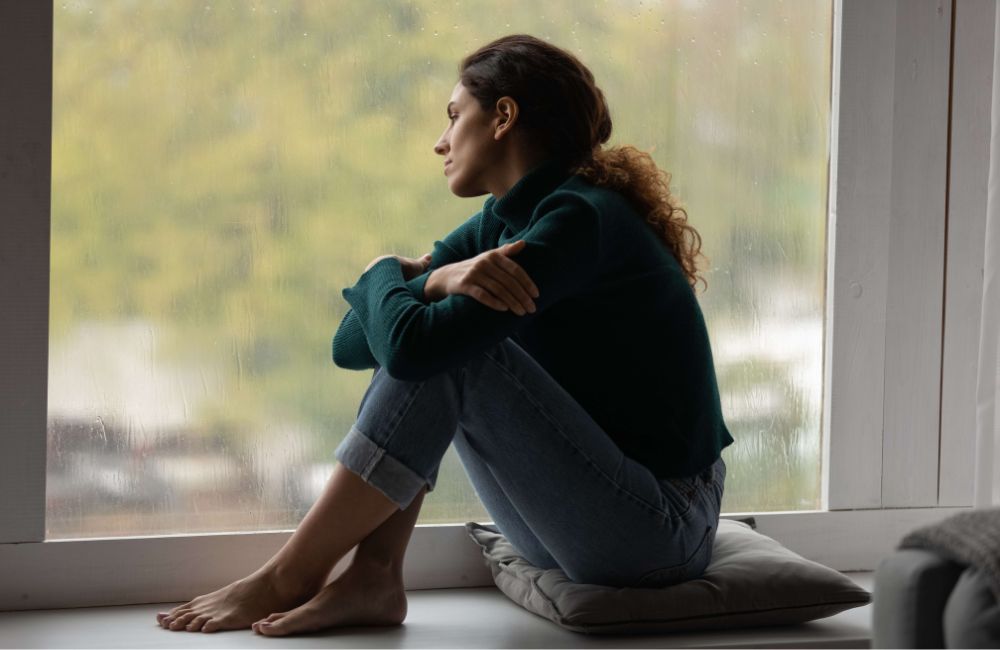In the UK, loneliness is a growing problem with around 3.83 million people experiencing chronic loneliness. Since the pandemic, there has been a rise in loneliness cases around the UK, intensifying the need for connection, community and communication. According the Mental Health Foundation, almost a quarter of adults faced loneliness during the UK lockdowns and we have yet to reverse this.
Even though loneliness is part of life, feeling chronically lonely can be detrimental to mental health and you should take the time to understand when you need support.
Although it might not seem like it from the outside, loneliness can be an extremely isolating experience. So, it’s important that we protect ourselves and the people around us by learning about the signs of loneliness and how to combat it.
Loneliness Awareness Week aims to address the issues around loneliness and highlights how it can affect our mental health. This year’s theme is ‘Random Acts of Connection’ improving and encouraging ways for people to connect with others to combat loneliness.
Understanding loneliness
Feeling lonely can mean different things to different people, some people will feel that their need for social interactions are not being met while for others it is that feeling of emptiness and being disconnected from the rest of the world.
Humans are social animals so for many of us, loneliness calls our sense of belonging into question, effecting self-esteem and confidence. Feeling lonely can affect many situations, such as making new friends and getting a job, perpetuating the problem, and creating a negative cycle of loneliness, loss of connection and mental health challenges.
Being on your own can be a positive experience if it is under your control. On the other hand, feeling like there is little or no support available can cause serious impacts on mental health, such as anxiety, depression, poor self-esteem and phobias.
What are the signs of loneliness?
Loneliness signs and symptoms can differ depending on the person and their situation, but the main signs are:
Sleep: when people feel lonely, they tend to experience a change in their sleeping patterns, they may feel more or less tired than usual.
Spending money: people who are feeling lonely may spend money on ‘unnecessary’ things to fill the void.
Eating habits: over-eating or under-eating are closely linked to depression and loneliness. Some people would console themselves by eating too much, while others would lose their appetite and find other ways to make themselves feel better.
Communication: inconsistency in communication patterns such as phoning and messaging more or less frequently.
Physical health: aside from sleep deprivation, loneliness can also lead to poor heart health and weakened immune system.
Tips to combat loneliness.
It is possible to overcome loneliness, but it does require effort on your part for changes to happen and support from others, such as a counsellor. In the long run, taking that first step will help you feel happier and healthier.
Speak to someone: talk to friends, family or a healthcare professional. Loneliness is not limited to feelings of isolation. It is often linked to ongoing and deeply rooted negative thoughts about yourself that can eventually lead to more serious emotional and medical problems.
Practice self-care: when you are feeling lonely, make sure you are doing what you can to look after yourself. Pamper yourself with a long bath, meditate and exercise.
Distract yourself: find healthy distractions like reading, listening to music or even watching your favourite series on TV. You can even start a project like decorating your home.
Join a support group: a support group online or in-person is a good way to meet new people, especially those who are experiencing the same feeling of loneliness as you. Getting to know new people may not be easy, but it can be really comforting to know that you are not alone.
Reach out: If you know someone who is experiencing loneliness, then reach out to them whether it’s over the phone or in person. Sometimes just a few minutes of your time can mean a lot to someone that really needs it.
For this year’s Loneliness Awareness Week, see what you can do to encourage yourself and others to connect. This could even be something small as commenting on someone’s outfit on the train or holding out the door for someone. Take a moment to do something that makes you feel good about yourself and connect with those closest to you.
Related article: How to deal with loneliness




